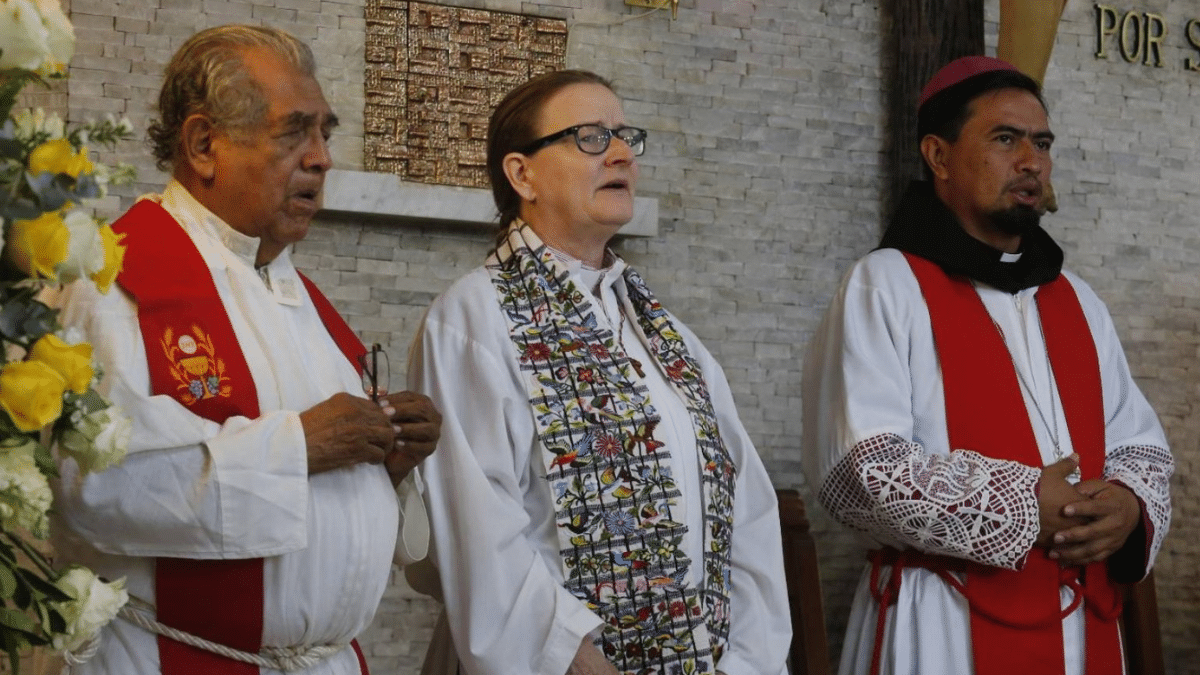(ZENIT News / San Salvador, 03.27.2025).- A Mass marking the 45th anniversary of the assassination of Saint Óscar Arnulfo Romero was overshadowed by controversy on March 24, as the participation of non-Catholic figures sparked criticism from the Apostolic Nunciature in El Salvador. The event, held at the Chapel of the Hospitalito La Divina Providencia—where the archbishop was murdered during Mass in 1980—was intended as a solemn tribute but instead ignited debate over liturgical norms and ecumenical boundaries.
The Mass was presided over by Bishop Oswaldo Estéfano Escobar Aguilar of Chalatenango and concelebrated by several Catholic priests. However, attendees were surprised to see the involvement of two controversial figures: Neftalí Ruíz, a representative of the so-called «Old Catholic Church,» and an Anglican woman bishop from the Episcopal Church of El Salvador. The Anglican woman bishop was given a prominent role in the ceremony, including participation in the entrance procession, sharing the homily, and being positioned at the altar during the liturgy.
This marks the third consecutive year that Anglican clergy have taken part in this Mass, a practice that has drawn increasing criticism from some members of the Catholic faithful. The Apostolic Nunciature swiftly issued a statement condemning these irregularities, reaffirming that Catholic liturgical law does not permit such participation in the Eucharistic celebration.
In its official statement, the Apostolic Nunciature in El Salvador reminded the public that while ecumenical gatherings with non-Catholic Christians are permitted, they must be limited to the Liturgy of the Word, shared reflections, and common prayers, such as the Lord’s Prayer. The inclusion of non-Catholic clergy in the Eucharistic celebration goes against established Catholic doctrine.
The Vatican’s diplomatic representation also objected to the presence of banners with political messages against mining, which had been placed on the altar. According to the statement, the altar must be reserved exclusively for the celebration of the Eucharist, in line with liturgical norms. “What took place this morning at the Chapel of the Hospitalito should not have happened, as it is expressly forbidden by ecclesiastical law,” the Nunciature emphasized.

The controversy underscores ongoing tensions surrounding the legacy of Archbishop Romero, who was canonized by Pope Francis in 2018. While widely revered as a defender of the poor and a voice against injustice, the manner in which his memory is honored continues to stir debate, particularly when it intersects with political activism or ecumenical participation beyond what the Church allows.
Thank you for reading our content. If you would like to receive ZENIT’s daily e-mail news, you can subscribe for free through this link.





